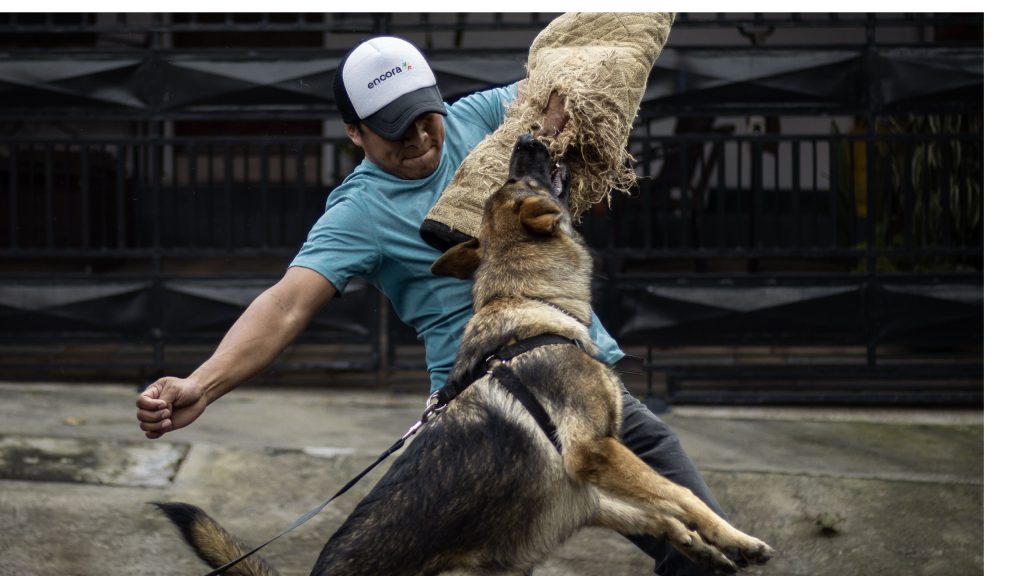Dog training is an enriching career path for animal lovers. As a trainer, you get to interact with dogs daily while teaching them skills and behaviors that make them happy, healthy companions.
Demand for qualified trainers continues rising as more people add dogs to their families.The dog training field offers diverse opportunities, from running group obedience classes to doing specialized therapy dog work.
Excellent communication skills and a tireless passion for helping dogs and owners are musts. This guide covers key steps to launching your dog training career in the UK.
Education and Qualifications
There are no legal requirements to become a dog trainer in the UK, but obtaining accredited qualifications provides credibility. Top options include:
Level 3 Diploma in Canine Training and Management
- 1+ year program covering dog psychology, training methods, behavior counseling, business skills.
- Earn while learning through apprenticeships.
- Ofqual regulated qualification prepares you for independent training or assisting more advanced trainers.
Level 4 Certificate for Dog Trainers and Instructors
- 6-18 month course provides advanced instruction in training psychology, client counseling, teaching group classes, more.
- Further develops skills to work with dogs exhibiting complex issues.
- Certification allows training independently or leading classes.
Bachelor’s Degree in Canine Behavior and Training
- 3-4 year university degree provides comprehensive education in dog behavior, learning theory, training methods, anatomy, business operations, more.
- Ideal for running own facility or specialized therapy roles.
- Usually requires extensive practical internships.
CPD Courses and Workshops
- Attend continuing education seminars and workshops frequently to stay updated on the latest positive reinforcement methods.
- CPD shows clients you invest in honing your expertise.

Skills Needed
Develop expertise in:
- Applying animal behavior and training theories.
- Using positive reinforcement techniques — reward desired behaviors instead of punishing.
- Reading canine body language and psychology.
- Personalizing training plans to each dog’s needs/challenges.
- Handling and gaining control over excited/aggressive dogs.
- Educating owners on continuing training at home.
- Addressing common issues like excessive barking, leash pulling, anxiety, aggression.
- Training therapy/assistance skills like alerting, retrieval, tactile therapy.
- Running group training classes.
- Starting and marketing a dog training business.
A mix of hands-on experience, continuous research, and natural rapport with dogs builds these abilities over time.
Gaining Practical Experience
Earning qualifications gets your foot in the door, but practical training adds indispensable skills:
Complete apprenticeships and internships allowing you to shadow experienced trainers on real clients.
Volunteer at shelters and rescues to practice training dogs with behavioral challenges.
Assist with group obedience classes to polish your instruction abilities.
Film yourself working with dogs and review to critique and improve your methods.
Attend seminars to learn from respected industry experts.
Read books and watch videos daily to absorb more techniques.
Get mentored by a Master Trainer who can supervise your progress.
Starting Your Career
There are several potential career paths after gaining qualifications and experience:
Open Your Own Dog Training Business
- Offer group classes like puppy preschool, obedience, agility or trick training.
- Provide private in-home training tailored to each family’s needs.
- Teach board and trains with intensive short-term training.
- Specialize in addressing common and serious behavior issues.
- Build relationships with vets, shelters, groomers, pet stores to accept referrals.
Work at an Established Dog Training Company
- Start as an assistant trainer or apprentice to further hone your skills.
- Progress to leading group classes and private lessons under supervision of senior trainers.
- Get promoted to Director of Training to coordinate programs and staff.
Offer Niche Training Services
- Provide therapy dog training for healthcare facilities, schools, disaster response.
- Coach competitive canine sports like agility, flyball, dock diving.
- Train service dogs to assist people with disabilities.
- Work with law enforcement K9 and detection dog units.
Importance of Continuing Education
Dog training is an evolving field. Ongoing learning ensures your methods align with current best practices. Continue advancing your expertise through:
- Attending dog training conferences like The International Association of Canine Professionals and APDT UK conferences.
- Completing courses and seminars to refresh foundational skills and expand your niche capabilities.
- Reading books, magazines, and studies on dog behavior, training approaches and related psychology/health fields.
- Joining professional associations like The Institute of Modern Dog Trainers for networking, resources and mentoring.
- Volunteering expertise to shelters and rescues to stay sharp training dogs with challenging behaviors.
- Achieving advanced certifications like Certified Professional Dog Trainer-Knowledge Assessed.
Make continuing education part of your annual routine and budget. A commitment to constant improvement makes you an in-demand trainer.
Effective Marketing Strategies
Promoting your services is crucial when starting out. Effective approaches include:
- Create engaging content like training videos and dog behavior articles to post on your website and social media.
- Host free local seminars on common issues like leash pulling or jumping to demonstrate your expertise.
- Provide discounts for new clients and their referrals. Offer loyalty rewards for repeat business.
- Network with veterinarians and pet businesses to circulate flyers and business cards on bulletin boards and in waiting areas.
- Speak at schools and community events about dog body language and humane training.
- Host social events like “Yappy Hour” for clients to mingle. Offer giveaways and training demos.
- List your business on directories like RSPCA, APDT UK, and Bark.com.
Keys to Success as a Dog Trainer
The best trainers possess:
- A genuine love of dogs and commitment to their wellbeing.
- Extensive knowledge of dog behavior and psychology.
- Strong verbal and written communication abilities.
- The patience and confidence to manage excitable dogs.
- Creativity and imagination in teaching new behaviors.
- An intuitive nature for interpreting canine body language.
- Physical stamina and ability to be on your feet most of the day.
- Flexibility and problem-solving skills.
- Business savvy if running your own training company
Conclusion
Becoming a dog trainer requires a tireless love of canines, quality education in training theories, hands-on experience under mentors, savvy business skills if working independently, and a dedication to continual learning.
With accredited qualifications, extensive real world practice, effective marketing, and the right mix of patience and imagination, you can gain the expertise and reputation to succeed.
Continually expand your knowledge and skills to provide dog owners with training that helps build happy, obedient, and satisfied pups. The UK’s strong demand for qualified trainers means 2024 offers great potential to turn your canine passion into a thriving, meaningful career.

